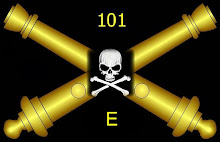Anbar Awakening

RAMADI, Iraq - Sheik Ahmed Abu Risha, who took over as leader of anti-al-Qaida Sunni tribes after his brother was assassinated, said he will leave Thursday for a two-week trip to the United States.
Abu Risha’s younger brother, Sheik Abdul-Sattar Abu Risha, was largely credited with bringing a measure of peace to Iraq’s vast and western Anbar province by uniting tribal forces and siding with the U.S. military against the terror network. The Sunni stronghold, which shares borders with Syria, Jordan and Saudi Arabia, was among the most violent in Iraq a year ago.
The Anbar Awakening Council founder was killed Sept. 13 in a bombing, just 10 days after he met with U.S. President George W. Bush in Anbar. Bush hailed the Sunni leader’s courage and pledged to help rebuild the province.
Sheik Ahmed Abu Risha, who took over the movement, told The Associated Press in an interview this week that he will leave Thursday and will visit Vermont, New York, Texas and Washington, D.C., where he hopes to meet Bush, although his itinerary was not fully determined.
“I will not come back to Anbar if I don’t meet with President Bush. If he doesn’t meet with me, I’ll go to the Democrats and see what they have to say,” he said, laughing.
The sheik said he wanted to learn how individual states work within the larger U.S. federal system. He hoped to attract investors to Anbar to provide jobs.
“We defeated al-Qaida, but what then? People need jobs,” said Sameer Rashid, Abu Risha’s assistant and translator.
Abu Risha said he will visit the 1st Battalion, 172nd Armor Division of the Vermont Army National Guard, a unit he befriended when they were stationed in Ramadi from July 2005 until June 2006. He also will stop at Norwich University in Northfield, Vermont, the nation’s first private military college.Abu Risha will travel with Maamoun Sami Rashid, the governor of Anbar.
Abu Risha said he will visit the 1st Battalion, 172nd Armor Division of the Vermont Army National Guard, a unit he befriended when they were stationed in Ramadi from July 2005 until June 2006. He also will stop at Norwich University in Northfield, Vermont, the nation’s first private military college.Abu Risha will travel with Maamoun Sami Rashid, the governor of Anbar.
The U.S. Embassy in Baghdad confirmed that Iraqi officials from Anbar were traveling to the United States as part of an international visitor’s program, which aims to increase mutual understanding.
Embassy spokeswoman Mirembe Nantongo said the delegates would meet with state and local leaders as well as hold meetings on the national level. But she declined to give more details about the trip or confirm the identities of the travelers.
(AP)
(AP)


